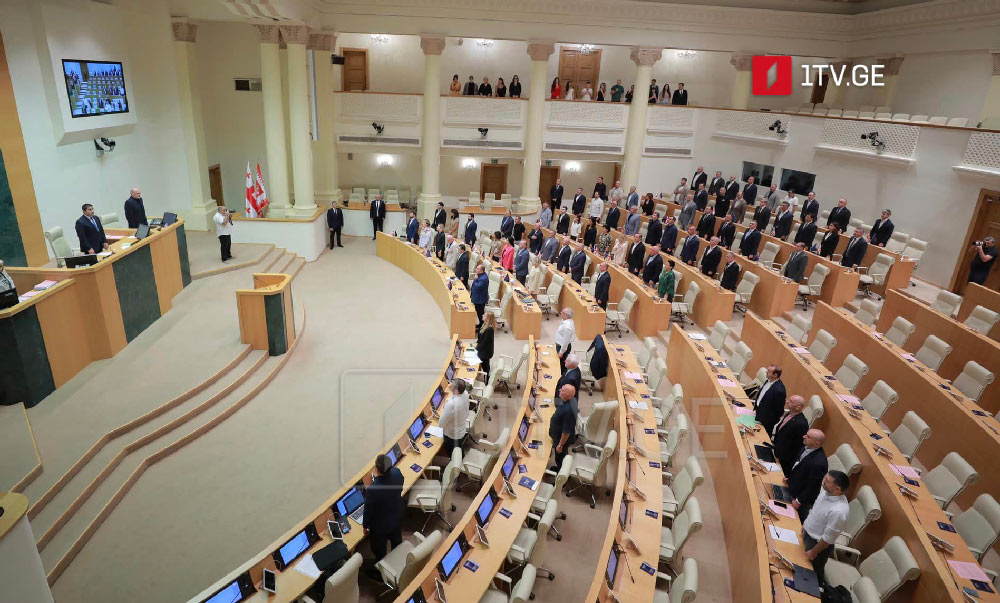The “Amnesty Law” initiated by the “Georgian Dream” faction was discussed in the second reading at the parliamentary plenary session.
The rapporteur, Archil Gorduladze, the First Deputy Chair of the “Georgian Dream” faction, presented the proposed amendments article by article and answered questions from the deputies.
According to the bill, the amnesty will apply to those convicted for carrying cold weapons, but only under specific conditions.
As explained by the presenter, persons who committed an act outlined in the first part of Article 2381, which pertains to the carrying of cold weapons by a person convicted of drug use, will be exempted from criminal liability and punishment.
According to the bill, those convicted for violating fire safety rules will be exempt from criminal liability and punishment only if the victims agree.
Similarly, those accused of document forgery will be exempted with the consent of the victims.
Regarding drug-related crimes, if the offenses are committed in a group under the third parts of Articles 260, 261, and the second part of Article 265 of the Criminal Code, the sentence will not be halved but will be reduced by 1/6.
The amendments also provide for amnesty for sentences related to covering up a crime or failing to report a crime.
The presenter noted that the sentence for covering up or failing to report a crime would be reduced proportionally to the reduction in the sentence for the specific crime.
The bill outlines the following forms of amnesty: immediate release; reduction of sentences by 1/2, 1/4, and 1/6; and reduction of probation sentences by one year for probationers.
It should be noted that the “Amnesty Law” does not apply to individuals convicted of murder, drug trafficking, sexual offenses, robbery, terrorism, corruption, official crimes, organized crime, conventional crimes, and other serious and particularly serious offenses.
Following the enactment of the amnesty law, approximately 1,000 people will be released immediately, while around 4,800 people will have their sentences reduced by varying durations and will gradually leave penitentiary institutions.
The parliament will vote on the “Amnesty Law” in the second reading on September 4 at the plenary session, the Parliament’s press office added.
